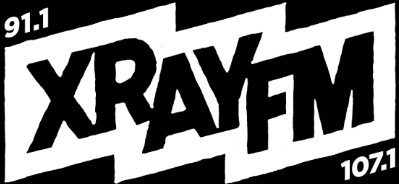Events
David McCullough and "The Wright Brothers"
- 7:30pm Friday, October 30, 2015
Historian David McCullough has been widely acclaimed as a “master of the art of narrative history.” He has won two Pulitzer Prizes, two National Book Awards, and has received the Presidential Medal of Freedom, the nation’s highest civilian award. His work 1776 has been acclaimed “a classic,” while John Adams, published in 2001, remains one of the most praised and widely read American biographies of all time. Mr. McCullough’s other books includeThe Johnstown Flood, The Great Bridge, The Path between the Seas, Mornings on Horseback,Brave Companions, and Truman. As may be said of few writers, none of his books have ever been out of print.
In a crowded, productive career, he has been an editor, teacher, lecturer, and familiar presence on public television. John Adams, the seven-part mini-series on HBO produced by Tom Hanks, was one of the most acclaimed television events of recent years. A gifted speaker, Mr. McCullough has lectured in all parts of the country and abroad, as well as at the White House. He is also one of the few private citizens to speak before a joint session of Congress.
Born in Pittsburgh in 1933, he was educated there and at Yale. He is an avid reader, traveler, and has enjoyed a lifelong interest in art and architecture. He is as well a devoted painter. He and his wife Rosalee Barnes McCullough have five children and nineteen grandchildren.
About The Wright Brothers
On a winter day in 1903, in the Outer Banks of North Carolina, two unknown brothers from Ohio changed history. But it would take the world some time to believe what had happened: the age of flight had begun, with the first heavier-than-air, powered machine carrying a pilot. Who were these men and how was it that they achieved what they did?
David McCullough, two-time winner of the Pulitzer Prize, tells the surprising, profoundly American story of Wilbur and Orville Wright. Far more than a couple of unschooled Dayton bicycle mechanics who happened to hit on success, they were men of exceptional courage and determination, and of far-ranging intellectual interests and ceaseless curiosity, much of which they attributed to their upbringing. The house they lived in had no electricity or indoor plumbing, but there were books aplenty, supplied mainly by their preacher father, and they never stopped reading.
When they worked together, no problem seemed to be insurmountable. Wilbur was unquestionably a genius. Orville had such mechanical ingenuity as few had ever seen. That they had no more than a public high school education, little money, and no contacts in high places never stopped them in their “mission” to take to the air. Nothing did, not even the self-evident reality that every time they took off in one of their contrivances, they risked being killed.
In this thrilling book, master historian David McCullough draws on the immense riches of the Wright Papers, including private diaries, notebooks, scrapbooks, and more than a thousand letters from private family correspondence to tell the human side of the Wright Brothers’ story, including the little-known contributions of their sister, Katharine, without whom things might well have gone differently for them.

